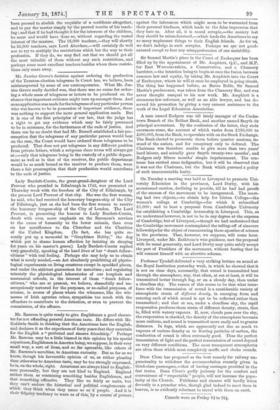Mr. Justice Grove's decision against ordering the production of the
Taunton-election telegrams in Court has, we believe, been misinterpreted by some of our contemporaries. What Mr. Jus- tice Grove really decided was, that there was no cause for order- ing a whole mass of telegrams or letters to be produced on the -chance that important evidence might turn up amongst them. And as no application was made for the telegrams of any particular person who was known to be in possession of important evidence, there -was nothing to support the more general application made. But it is one of the first principles of our law, that the judge has a right to get any evidence which may be fairly presumed to be in existence, for the furtherance of the ends of justice. And there can be no doubt that had Mr. Russell established a fair pre- sumption that the telegrams of any particular person would bear on the case, the Court would have ordered those telegrams to be produced. That does not put telegrams in any different position from private letters, which a subpcena duces tecum will always get at ;—only that telegrams being in the custody of a public depart- ment as well as in that of the receiver, the public department would be as much bound as the receiver to produce them, were -there a fair presumption that their production would contribute to the ends of justice.


































 Previous page
Previous page